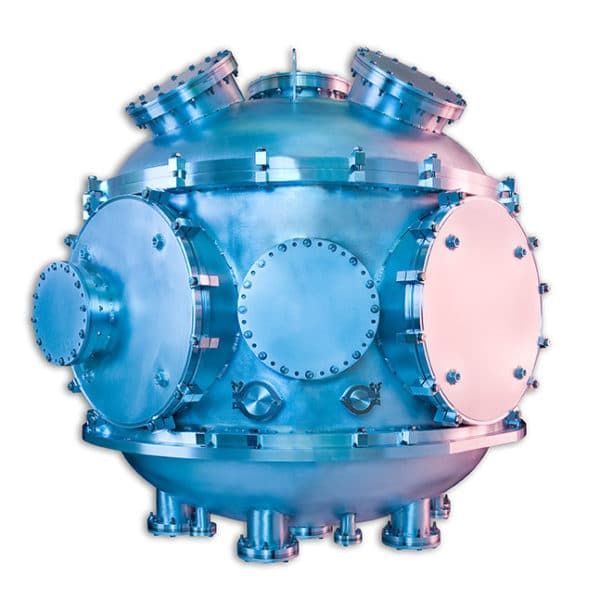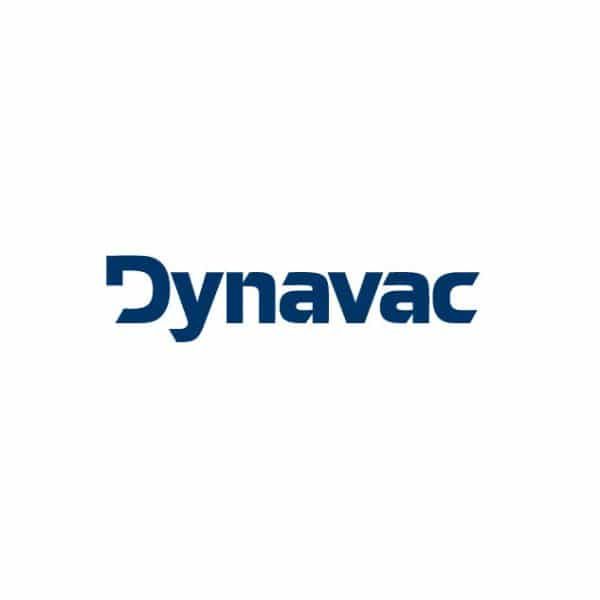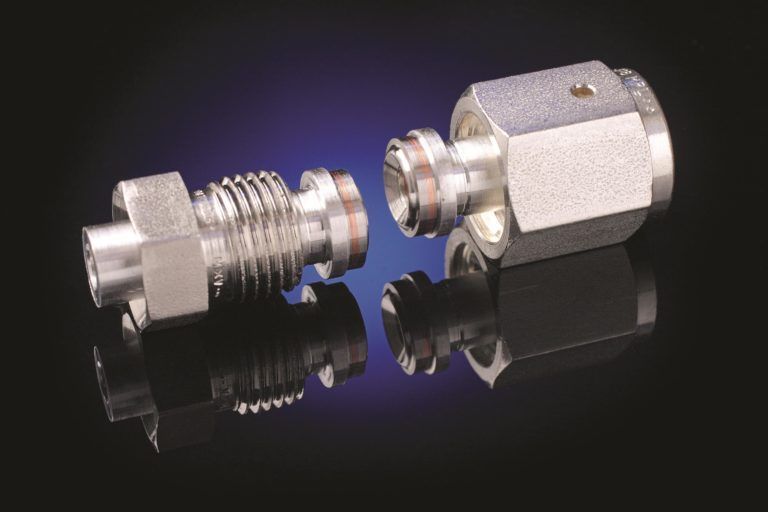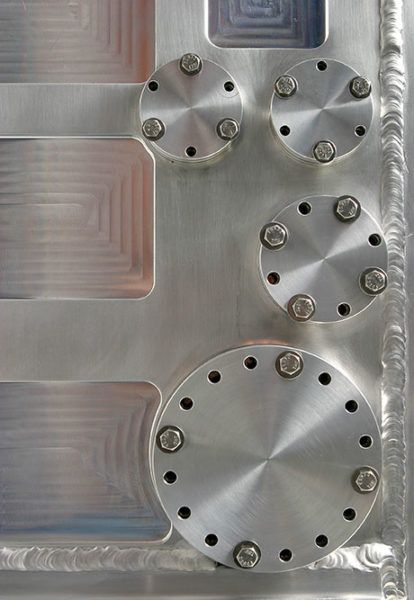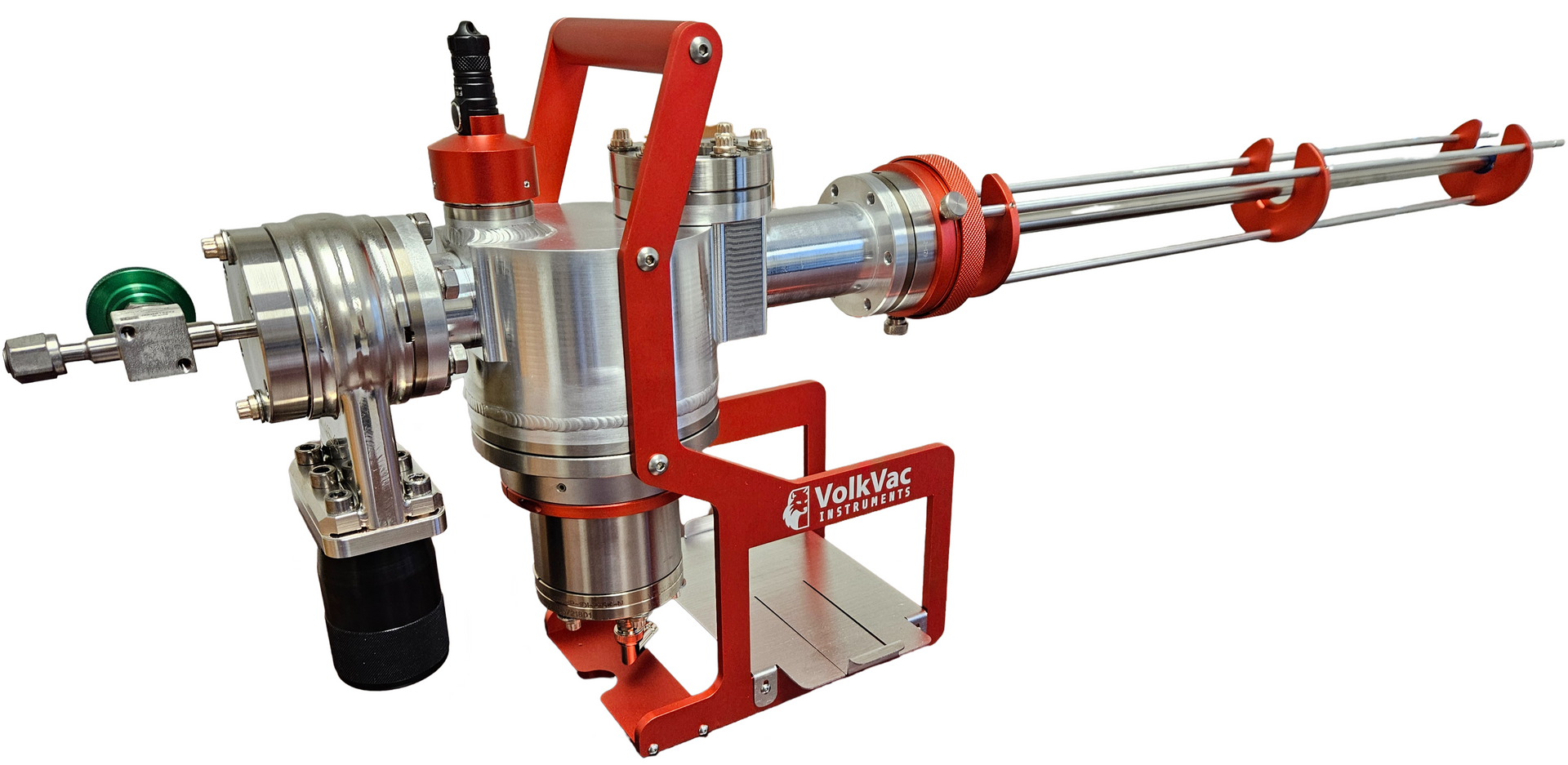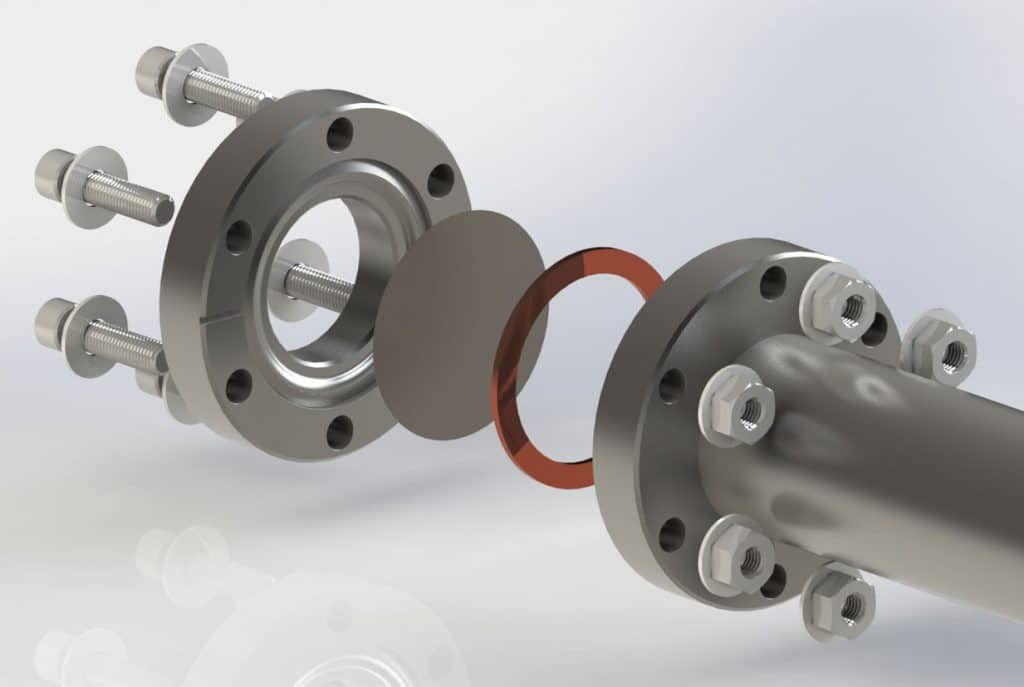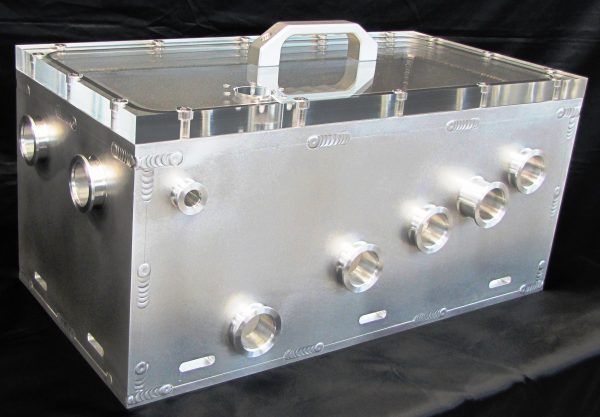
Several Atlas aluminum vacuum chambers with breadboards installed at Max Born in Berlin are used for the generation and application of ultra short x-ray pulses via a frequency conversion process called high order harmonic generation. The purpose is to record films of atoms and molecules on their natural time scales from the femtosecond (10^-15 seconds) to the attosecond (10^-18 seconds) range to capture atomic and molecular reactions.
Reliable vacuum is essential to the process because the pulses absorb air. The rectangular shape and accompanying breadboard allows the team to strategically and simultaneously position several optical elements for ease of filtering and focusing on the x-ray pulses. This permits additional laser pulses, from the near-infrared to the ultraviolet regime, to overlap with the x-ray pulses in order to make the atomic and molecular recordings.
Aluminum, says Dr. Bernd Schϋtte of Max Born, is the material of choice for the chambers because “it is cost effective and its low weight eases the handling of the chambers.”
